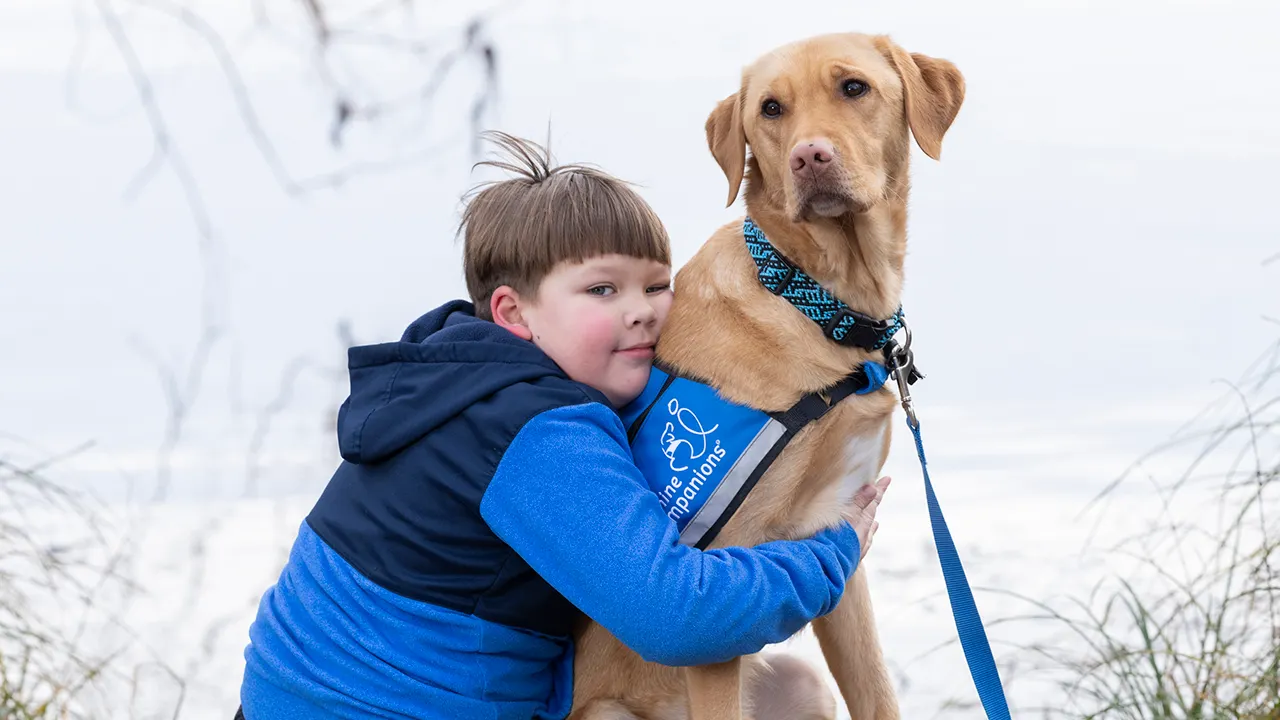Transformative Impact: How Service Dogs Are Changing Lives for Children with Autism
For children with autism spectrum disorder (ASD), service dogs are proving to be life-changing companions. Recent studies and heartfelt family testimonials reveal these specially trained animals enhance emotional regulation, social interaction, and independence in young individuals. Organizations across North America and Europe now pair hundreds of dogs annually with autistic children, offering not just companionship but measurable improvements in daily functioning.
The Science Behind Service Dogs and Autism Support
A 2022 study published in Pediatric Research found that children with autism who had service dogs exhibited:
- 34% fewer meltdowns and aggressive episodes
- 28% improvement in social communication skills
- Significantly lower cortisol levels (indicating reduced stress)
“The human-animal bond triggers neurochemical changes that medication alone can’t replicate,” explains Dr. Sarah Chen, a developmental psychologist at UCLA. “Dogs provide unconditional acceptance, which helps children with ASD navigate overwhelming situations.”
Service dogs undergo 18-24 months of specialized training costing $20,000-$60,000 per animal. They learn to:
- Interrupt harmful stimming behaviors
- Provide deep pressure therapy during anxiety attacks
- Act as a social bridge in public settings
Real-Life Transformations: Families Share Their Stories
The Martinez family of Austin, Texas, credits golden retriever Scout with their 8-year-old son’s breakthrough. “Before Scout, grocery stores meant screaming meltdowns within minutes,” recalls mother Elena Martinez. “Now he holds Scout’s leash proudly. The dog senses rising anxiety before we do and will nudge his hand or lay across his lap.”
Such stories align with research from Purdue University’s College of Veterinary Medicine, which tracked 100 autism service dog placements:
- 92% of parents reported improved family outings
- 87% noted better sleep patterns
- 76% observed increased verbal communication
Challenges and Considerations in Service Dog Adoption
Despite proven benefits, barriers exist. Waitlists at accredited organizations average 2-3 years, while insurance rarely covers costs. Some schools initially resist accommodating the dogs, though the Americans with Disabilities Act (ADA) mandates access.
“Not every child responds equally,” cautions trainer Michael O’Donnell of Paws for Autism. “We assess family dynamics, sensory sensitivities, and the child’s comfort with animals before matching. The wrong pairing can increase stress for both parties.”
Ongoing training requirements also demand commitment. Families must reinforce commands and maintain the dog’s skills—a challenge for already overwhelmed households.
The Future of Autism Service Dogs: Innovation and Accessibility
Emerging solutions aim to expand access:
- Puppy-raising programs: Families help train future service dogs under professional guidance
- Virtual coaching: Remote sessions reduce geographic barriers to expert support
- Genetic research: Studies identify temperament traits ideal for autism support
Technology also plays a role. Some organizations now use AI to analyze child-dog interactions during matching processes, improving success rates by 22% according to Assistance Dogs International.
Beyond Companionship: A New Lease on Life
For 10-year-old Noah Jacobs, service dog Rocket made school attendance possible. “The principal called us weekly about his elopement risks,” shares father David Jacobs. “Now Rocket anchors him physically and emotionally. Last month, Noah read aloud to his class with Rocket beside him—something we never imagined.”
As research continues quantifying these impacts, demand grows exponentially. Early intervention programs now explore incorporating service dogs into therapy plans, while universities study long-term effects into adulthood.
The evidence is clear: For many families navigating autism’s challenges, these remarkable canines offer more than assistance—they provide hope, confidence, and connection in a world that often feels overwhelming.
Families interested in exploring service dog options can contact accredited organizations like Autism Service Dogs of America or consult their child’s therapy team for local resources.
See more WebMD Network



